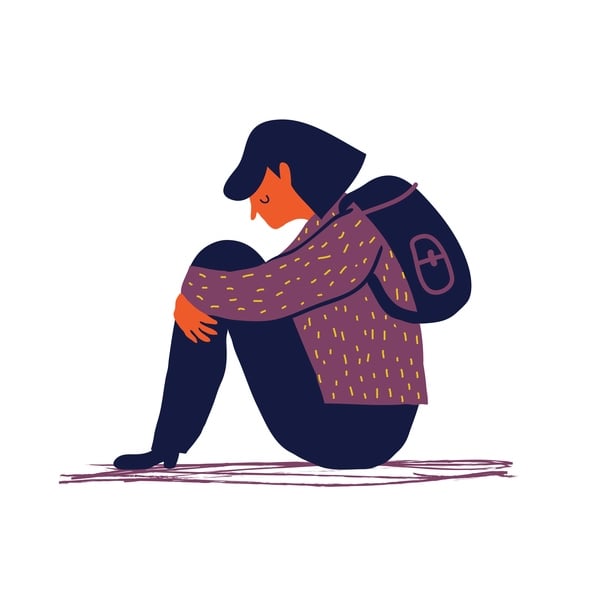You have /5 articles left.
Sign up for a free account or log in.

iStock/Anna_Isaeva
If the Myers-Briggs assessment didn't do it, Susan Cain’s Quiet certainly did. The word “introvert” has become common parlance. People now correct themselves if caught using the word “shy.” Cain has helped to develop nuance and sensitivity around introversion (e.g., introverts don’t hate people, we need alone time to recharge, we are great thinkers). But has higher education recognized the significance of this personality theory in order to better support introverted students’ learning and success?
I was an undergraduate at a traditional, midsize, land-based institution. While some of my classes had more than 100 students enrolled, most were much smaller discussion sections. But for a young introvert like me who was still getting her sea legs in life and at college, size was irrelevant. As a rule, I did not participate in class unless called on and questioned. Even then, my answers were cursory, more along the lines of, “What can I say that will get everyone to stop looking at me?”
I did well in college; I could write thoughtful essays in my sleep. I did all the readings. I rarely missed class. But participation was an anxiety-inducing experience for me. I dreaded it. Worse, never was it communicated to me that my inward focus was normal and valuable. I often felt just plain wrong in a land-based classroom; ideas were bouncing around furiously in my mind, but my square-peg style didn’t fit into their round-hole discussions.
Years later, long after learning to navigate my introversion through a combination of age and professional demands, I began teaching college success strategies to online students. During one of my first courses, a young man (we’ll call him Joe) shared his story on the class discussion board as students responded to a prompt about their previous educational experiences. Joe told us that when he was a child, his teachers and parents were concerned that he had a serious speech disability because he spoke so little. I couldn’t believe this, because Joe was one of my best and most “vocal” students in the online discussion. He responded to all of his classmates’ posts, always going beyond the required number of responses. Ever curious, I emailed him to inquire further.
Joe told me that after his high school graduation, he’d put off college because of his fears of the classroom environment. He’d decided to enroll in this, one class at his local community college, because he had the option to take his courses online. Joe loved the online environment, and rather than feeling like it was his second-best option or that he was a second-best learner, he was empowered and eager. I imagined him pursuing his degree while maturity had a chance to do its job, gaining confidence in his ideas in written form first so that he could begin to take more extroverted baby steps in the future.
I completed course work for my most recent graduate degree almost entirely online. I’m confident in saying that I was one of the most active participants in my courses. One of the things that I noticed as an online student is the importance of the time I was allowed to reflect on ideas due to the asynchronous nature of my courses. When I took traditional 55-minute land-based courses, I often thought of an answer to my professor’s questions four hours after class ended. I always felt like I was two steps behind everyone else, because introverts need time to process and consider internally. Like Joe, land-based courses made me feel like a fish out of water. As an online student, I could finally swim.
Very little has been written about whether introverts are more successful in online courses, but Rick Harrington and Donald Loffredo did consider the question in their 2009 article “MBTI Personality Type and Other Factors That Relate to Preference for Online Versus Face-to-Face Instruction.” In their admittedly small study, they found that introverts were more likely to prefer online courses while extroverts were more likely to prefer face-to-face. Though I’ve taught online for many years, I’ve never been privy to a discussion about the impact of personality type, specifically levels of introversion and extroversion, on our learners. Questions abound.
- Do introverts prefer online learning? (We need more than one small study.)
- Are introverts more likely to succeed in online courses? (We need to go beyond preference.)
- How do introverts describe their experiences as online and land-based learners? (We need to value the introverted voices of the world.)
- What about introverted professors? (This would fall under the “whole other can of worms” category for future exploration.)
- Can we improve the online experience for extroverted students? (In the spirit of creating systems of success for all students, we should.)
While critics will argue that extroversion is the ideal mode of existence and that as higher educators, we are therefore bound to press all students into a life of extroverted servitude, let us return to where we began, in the work of Susan Cain, whose “quiet revolution” made the leap from a book to a movement. Cain has dedicated her life to remedying what she calls the “grave mistake” of idealizing extroversion and argues that we must stop treating introversion as a “second-class personality trait.” One of Cain’s model introverts, Rosa Parks, is a reminder that quiet can also be powerful. Isn’t it our job, after all, to help all of our students claim their power, even if that means letting go of our deeply held beliefs about primacy in learning modalities?







